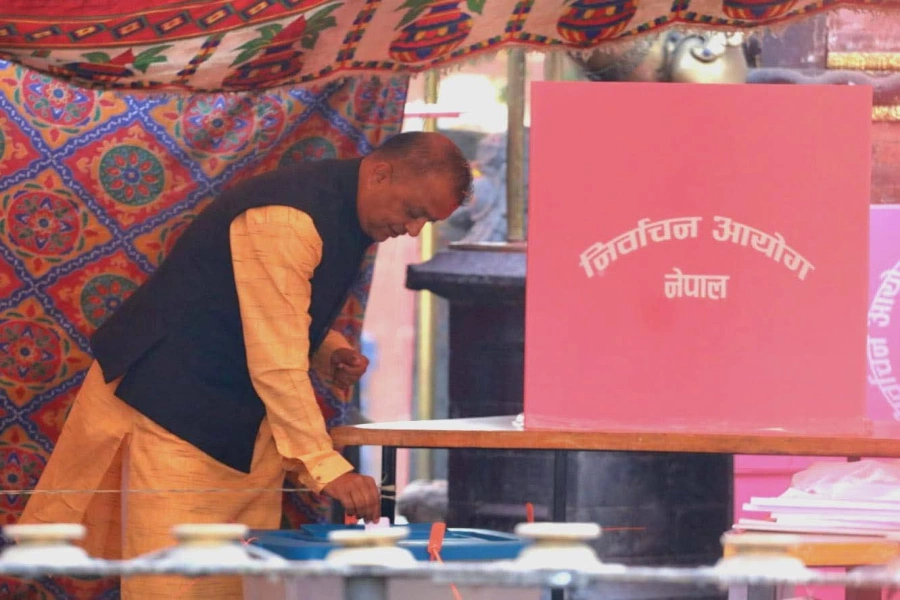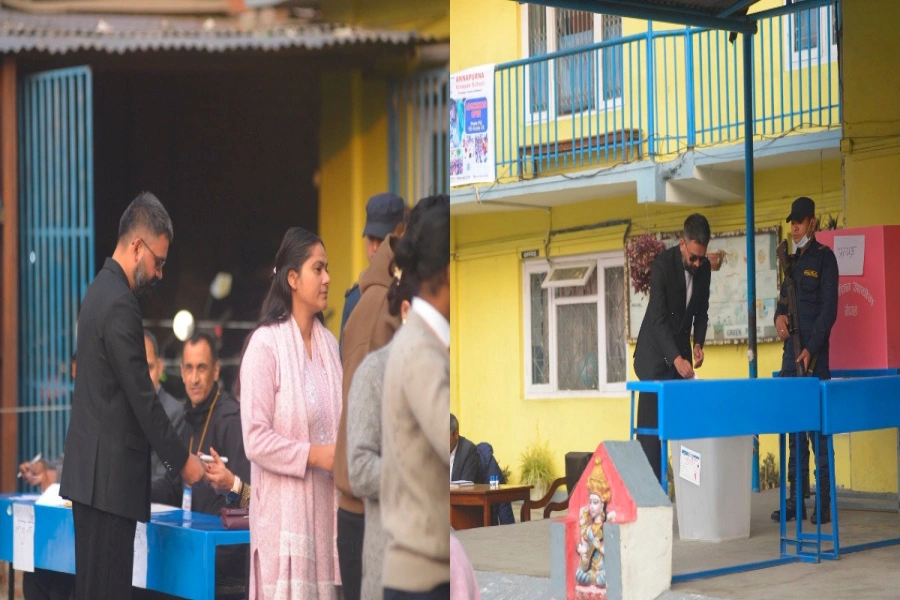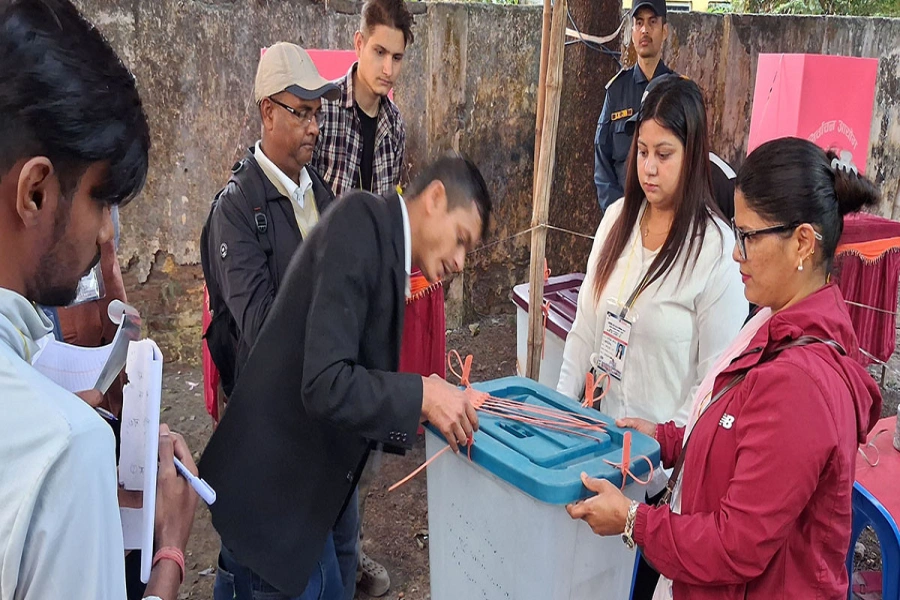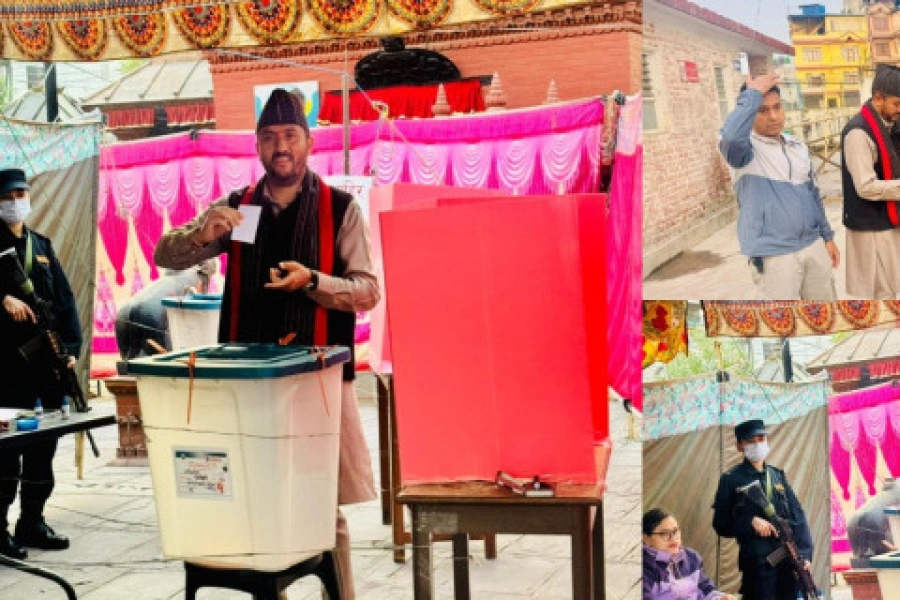KATHMANDU, July 13: Most government offices across the country are found to be engaging in massive irregularities in recurrent expenditure as the end of the fiscal year approaches.
Heads of offices, administrative officials, accountants, storekeepers and other staff work in collusion to spend huge amounts. This has remained a regular practice for years.
Government figures show that the recurrent expenditure budget is spent recklessly after July 1 mainly with a view to using up all the remaining budget allocations before the fiscal year ends in mid-July. According to the Office of Financial Comptroller General (OFCG), daily regular budget expenditure remained Rs 1.28 billion on average during the rest of the year.
But the expenditure suddenly jumped to four to five billion daily after the second phase local elections on June 28. The expenditure after July 1 is 400 to 500 percent higher in comparison to the previous months.
OFCG recorded total recurrent expenditure of Rs 452 billion until July 1. But the total exceeded Rs 499 billion after 10 days, including a Saturday. Most government offices are closed on Saturdays.
A senior official at the Finance Ministry said that most people seem to make irregularities in the development budget a big issue, but no one seemed to be paying any attention on irregularities in the recurrent expenditure. “There are massive irregularities in various forms in the recurrent expenditure just like in development expenditure,” the official told Republica.
Lending slows as banks focus on recovery of loans at fiscal yea...

The official further claimed that such irregularities in recurrent expenses could be in the billions because the development budget involves only some ministries while recurrent expenditures involve all ministries as well as other government bodies.
The figures from the comptroller’s office show that all government offices taken together spent Rs 47 billion during the 10 days after July 1. It should have been less than 15 billion if the expenditure was at the same rate as in previous months.
Senior government officials said that though the development expenditures could be higher during the closing days of the fiscal year, the same is not the case with recurrent capital.
“Development expenditure appears high in the closing days of each fiscal year because most of the contractors submit their bills for the previous months during those closing days and the government offices need to pay up,” said an official at the Finance Ministry.
“But there is no justifiable reason behind the increased recurrent expenditure in the closing days. Recurrent expenditures are spent equally in every month.” He said that such massive increment in recurrent expenditures during the closing days is an indication of irregularities.
Finance Secretary Shanta Raj Subedi admitted that the recurrent expenditures are not fully transparent. He said that sensing some irregularities the ministry has asked OFCG to be more cautious while auditing recurrent expenditures at government offices.
Subedi said such expenses could be high during the closure of the fiscal year due to the practice of releasing monies under some heads only at the close of the fiscal year. “There is a practice of paying bills for water supply, electricity, house rent, salaries and some capital expenses only at the closure of the fiscal year,” he said. “The expenses have increased because of contracts for ration supplies for the Army and Police.”
Subedi claimed that all the increased expenses at the end of the fiscal year couldn’t be due to irregularities. Irregularities can increase the expenditures slightly but these shouldn’t be the excuse for increasing the expenditures four to five times, he said.
A senior official at OFCG informed that the number of cheques cleared has exceeded 20 thousand in a day in recent days. The number used to be less than four to five thousand during other times. “Payments of 18 thousand cheques took place last Friday alone. Four to five times more cheques were received after July 1 in comparison to previous days,” said the official requesting anonymity.
OFCG maintains records of daily incomes and expenditures of government offices all over the country. According to officials involved in the auditing, irregularities take place while submitting bills for water, electricity, communications, furniture, photocopies, tiffin, office management and miscellaneous.
Government offices pay unnecessarily for vehicle maintenance, allocate allowances for staff deputed outside their offices and are involved in forging bills, among other things. Irregularities in the procurement process are believed to be easier as these can take place in collusion with businesspersons.
The official claimed that such irregularities are never exposed because even the auditors are involved in the collusion.
Recent reports from the Auditor General have shown an increase in regular expenditures. The latest report stated that the unsettled expenditures had increased by 72 percent last year.
Economist and former advisor to the Finance Ministry Keshav Acharya said that the recurrent budget expenditure is not transparent. According to him, the procurement procedures are quite opaque and procurements are done hurriedly at the end of fiscal year to use up the allocated budget. “Most senior government officials are either outside the country or outside the capital these days and this is to use up the budget. Such expenses at the end of the fiscal year also remain opaque,” said Acharya. “There is a tendency at government offices to use up all the budget as they fear a reduction in future allocations. Some heads of offices instruct staff to spend all the allocated budget no matter how and that makes it easier to indulge in irregularity,” said another official.
Sources at OFCG said that most government offices never return the allocated budget under any head except salaries and allowances. “Most offices spend the entire allocated budget and some show savings of a few hundreds only,” said the official. “In case of some ministries, they might save some hundreds of thousands in the recurrent budget, just for formality.”

















-1200x560-1772642762.webp)





















